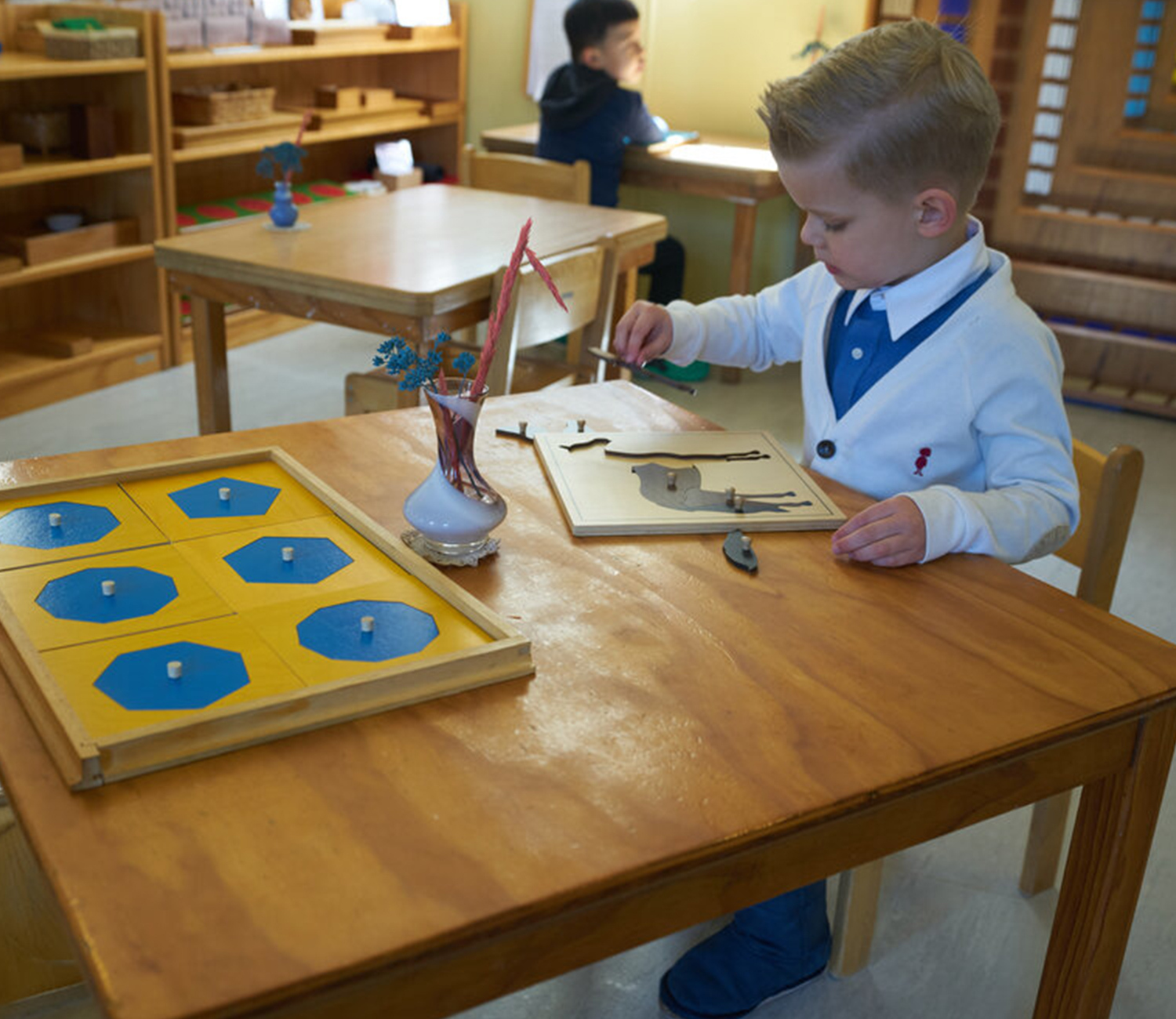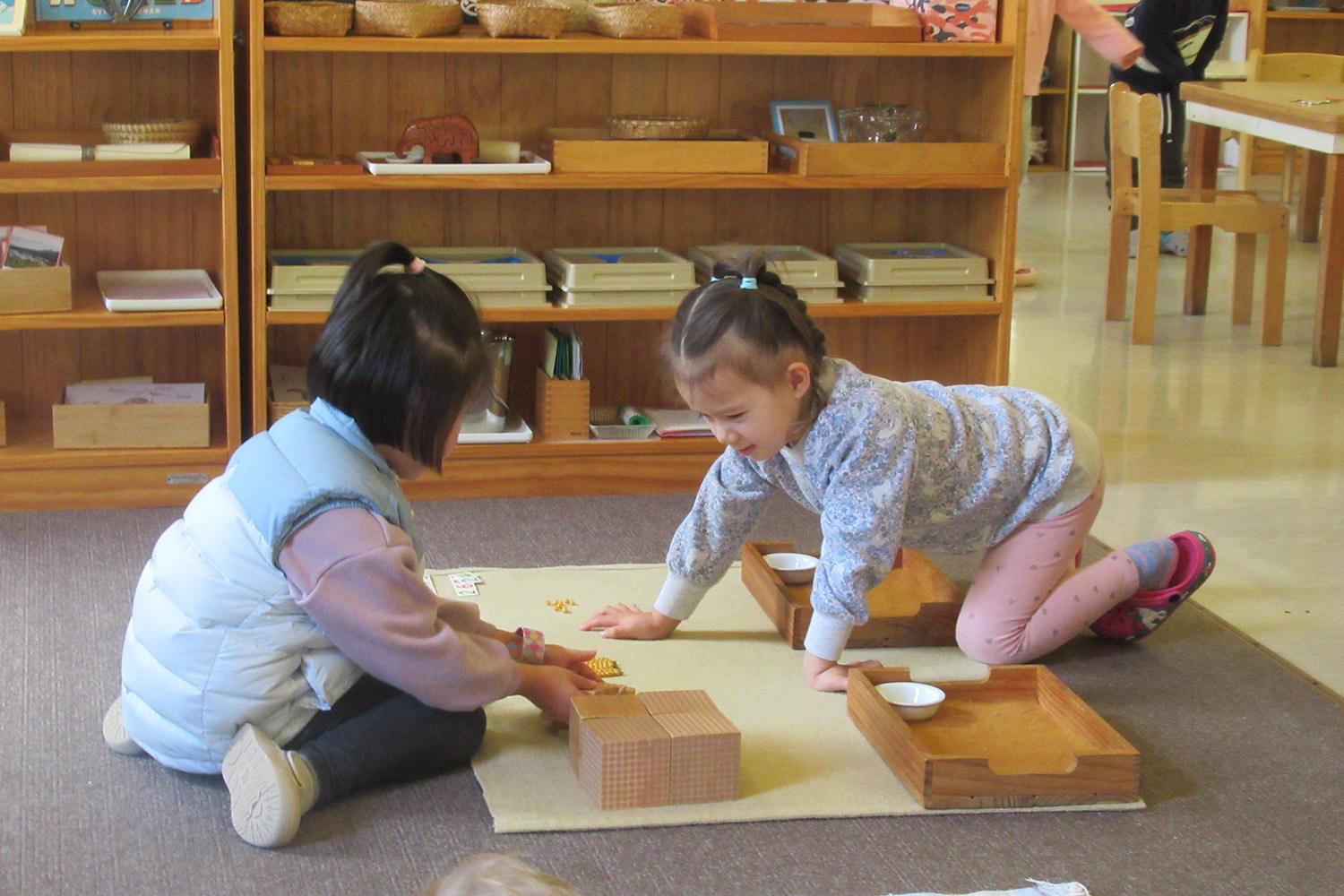
Why Montessori?
When you enter a Montessori classroom you will notice:
- Students are free to move around the classroom, and may work at a table or on a floormat.
- Students are engaged in purposeful play and creative work.
- Students working on their own and in small groups.
- Respectful teacher/child interactions.
- Positive interactions between children.
- Focused attention and good concentration on hands-on activities.
- A well maintained and organised environment with multi-sensory learning materials on a variety of topics displayed on the shelves.
- Encouragement of children to find their own deep sense of satisfaction and pride in their work as opposed to an extrinsic reward system.
Because Montessori Education is "alive" and thriving today, much attention has been focused on why it is so successful. The latest research on the brain and child development continually supports Maria Montessori’s years of careful observations of the child compiled a century ago.
The Montessori Mafia
The Key Principles of Montessori Education Unveiled
In her book Montessori: 'The Science Behind the Genius', Dr. Angelina Lillard hones in on the eight principles of Montessori education that make it so relevant today. These principles follow:
- Movement and cognition: movement and cognition are closely entwined, and movement can enhance thinking and learning
- Choice: learning and well-being are improved when people have a sense of control over their lives
- Interest: people learn better when they are interested in what they are learning
- Extrinsic rewards are avoided: tying extrinsic rewards to an activity, like money for reading or high grades for tests, negatively impacts motivation to engage in that activity when the reward is withdrawn
- Learning from and with peers: collaborative arrangements can be very conducive to learning
- Learning in context: learning situated in meaningful contexts is often deeper and richer than learning in abstract contexts
- Teacher ways and child ways: particular forms of adult interaction are associated with more optimal child outcomes
- Order in environment and mind: order in the environment is beneficial to children.

Exploring a Montessori Classroom
When you step into a Montessori classroom, you immediately notice a distinct environment that fosters active learning and child-centred education. The students are given the freedom to move around the classroom, whether they choose to work at a table or on a floormat. Engaged in purposeful play and creative work, the students are encouraged to explore their interests and develop their skills at their own pace. They can be seen working individually or in small groups, collaborating and learning from one another. The teacher-child interactions are characterised by respect and understanding, creating a nurturing atmosphere. Positive interactions between the children are also evident, as they learn to communicate, share, and empathise with their peers. The students demonstrate focused attention and good concentration while engaging in hands-on activities, immersing themselves in the learning process. The classroom itself is well maintained and organised, with shelves displaying a wide array of multi-sensory learning materials covering various topics. In the Montessori approach, emphasis is placed on intrinsic motivation, and children are encouraged to find their own deep sense of satisfaction and pride in their work, rather than relying on external rewards. The enduring success of Montessori education can be attributed to the alignment of its principles with the latest research on brain development and child psychology, affirming the timeless wisdom of Maria Montessori's observations made over a century ago.

Maria Montessori
Dr. Maria Montessori was born in Italy in 1870 and to prove her exceptional qualities, became one of the first women to graduate in medicine in Italy. She became increasingly interested in the needs of children and by 1900 she was teaching Pedagogy at the University of Rome. Parallel to her medical career, she was intensely involved in work with children, experimenting and developing a highly imaginative approach to Education.
By 1910, Maria Montessori was already known as a great educator and the originator of the educational system that bears her name.
Her success in Italy led to the opening of other Montessori schools. For the next 40 years, she traveled throughout Europe, Asia, and the United States lecturing; writing and establishing teacher-training programmes.
Addressing influential groups, she insisted that adults should motivate children by providing them with the right materials, by showing them how they are used and then leaving the children to learn for themselves.
When Maria Montessori died, in Holland, in 1952, the value of her lifetime work was clearly apparent. The Montessori Method was and remains a widely acclaimed educational concept with a proven record of success and many dedicated followers.
Montessori Method & Advantages